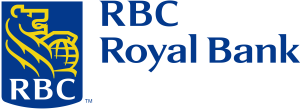A rising number of Canadians would like to see their mortgage paid in full prior to the commencement of their retirement. The Royal Bank of Canada (RBC) conducted a survey in 2007 that found 66 per cent of Canadians considered it important for their home to be paid off before they retired. That number has risen to 77 per cent of the baby boomers surveyed in the latest poll conducted by TD bank.
Yet, according to TD bank, more than half of the baby boomer generation has paid off less than 50 per cent of their current mortgage, and according to RBC, 25 per cent of retirees still carry a mortgage on their primary residence.
CanadianMortgageTrends.com believes these figures will rise due to increasing home costs and consumer debt load.
If Canadians are putting the bulk of their funds into debt and mortgage payments, this means less funds will be contributed toward investments, which, coupled with inflation, could mean stock-market returns will decrease. If investments are producing less return, pensions funds are decreasing as baby boomers age past 65 and Canada’s senior population swells, how will retirees generate income?
The Reverse Mortgage
CanadianMortgageTrends.com suggests that seniors and retirees could increasingly be left to rely on their home to free the funds they need to compensate a comfortable, lengthy retirement. Canadians are living longer lives than they ever have before, and added costs, such as home care, medical treatments, prescriptions and home renovations, will make necessary significant monthly income. A reverse mortgage frees the equity built in your home tax-free, with no need to repay the loan amount so long as you or your partner remains resident of that property, and will not affect Old Age Security or other government issued payments.
Alternative Investment Strategy
Relying on home equity to compensate your retirement is one means of generating income, but before your financial situation dictates this move as a necessity, and before you hit the age of retirement, there are other options you should consider.
Some financial experts recommend that since mortgage payments can provide a tax deduction, it is more advantageous to maintain a mortgage going into retirement and allocate a larger portion of funds to tax-efficient investment vehicles, such as whole life insurance or universal life insurance policies with pragmatic investment components, or into maxing out your annual RRSP contributions.
While having your home paid off free and clear does provide peace of mind and accessible equity, it is also comforting to know that you have invested wisely throughout your life and have alternate means of income to resource when retirement lifestyle requires it. Financial success almost always blossoms out of diversity. While you still can, explore your options and utilize those that will not result in heavy taxation and will grow and provide income for the future.

